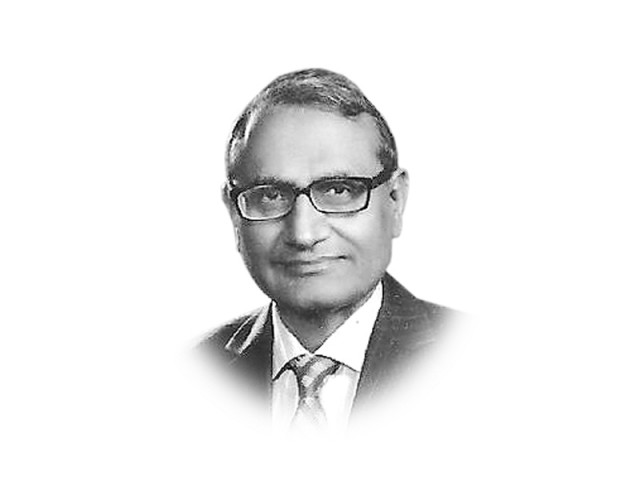Who is playing politics with the economy?
First the interior minister and now it is the finance minister, one sees a pattern of intolerance towards dissent.

pervez.tahir@tribune.com.pk

The finance minister claims that the rupee-parity issue was never discussed with the IMF. It is common knowledge that Pakistan went to the IMF because it was unable to finance a deficit of as low as one per cent on its external account. Payments had to be made out of the fast depleting reserves. This put pressure on the rupee and attempts by the State Bank to defend the rupee led to further depletion of foreign exchange reserves. There is no earthly reason to believe that discussions at the staff and board level kept mum on the issue. As a matter of fact, the access to the Extended Fund Facility is precisely because of what the IMF describes as “an inherently weak balance of payments position and chronic structural impediments”. Again, the IMF press release of September 4, 2013 emphasises that “Monetary and exchange rate policies should be geared to rebuilding external buffers”. What these buffers are and the mechanism to rebuild them becomes quite clear when we look at the prior actions, given out again by the IMF in a press briefing in Washington, DC by Gerry Rice, the IMF director of communications, on July 11, 2013. Among other things, the prior actions included “certain central bank actions”. One action, not hard to deduce from the exchange rate movement since the staff level agreement in July, was the end of the State Bank intervention in the market to support the rupee. The second would be confirmed on September 13 when the governor announces a tightening of the monetary policy.
In the IMF’s estimation, the real effective exchange rate should decline by 7.7 per cent during the programme period. This is only an indicator, not an agreed target, as the finance minister contends. But it does show the direction of change that the policy conditionality is likely to ensure. Does the finance minister dispute this direction of change? His view, that the speculators are the villain in the piece, is as bizarre as the view that the speculators did not manipulate the stock market to welcome the PML-N victory.
Published in The Express Tribune, September 13th, 2013.
Like Opinion & Editorial on Facebook, follow @ETOpEd on Twitter to receive all updates on all our daily pieces.














COMMENTS
Comments are moderated and generally will be posted if they are on-topic and not abusive.
For more information, please see our Comments FAQ